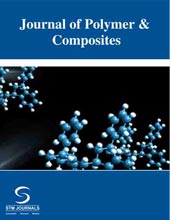[{“box”:0,”content”:”
n
n
- n t

n
[/foreach]
n
n
n
- [foreach 286] [if 1175 not_equal=””]n t
- , , ,
n[/if 1175][/foreach]
n
Abstract
nDue to the combination of its numerous excellent mechanical qualities, the flexible iron has been used more and more since its invention in 1948. To develop significantly improved characteristics, the unnecessary investigation is being done. The most recent development in the field of flexible iron, or SG iron, is Austempererd malleable iron. At four different temperatures, two different types of spheroidal graphite (SG) cast iron samples with varying copper weight levels were austempered. The temperatures used for austempering were 200°C, 300°C, 350°C, and 400°C. As a component of the austempering time and temperature, the effect of the austempering process (i.e. time and temperature) on the mechanical characteristics of spheroidal graphite iron was investigated. The progress of spheroidal graphite iron’s properties was significantly influenced by the pace of cooling and the extinguishing process. The organisation of different stages during isothermal change under varied austempering settings has also been the focus of XRD analysis. By using SEM, graphite morphology has been focused on. For this investigation, samples were obtained from the castings’ focal point for XRD analysis. It was discovered that virtually always, it is possible to discriminate between the ferrite (110) and austenite (111) lines. The ferrite (110) line is growing with expanding austempering time and declining with increasing austempering temperature, whereas the highest power of the austenite (111) line is expanding with expanding temperature. Thus, very precise control of the interaction components (austempering duration and temperature) is required for austempering. The results showed that, when compared to other grades (N1) through the various austempering processes used in this evaluation, ADI containing the alloying component copper (grade N2) achieved crucial mechanical qualities.
n
Keywords: Austempering (temperature and time), Spheroidal Graphite Iron, XRD, SEM analysis
n[if 424 equals=”Regular Issue”][This article belongs to Journal of Polymer and Composites(jopc)]
n
n

n
n
n
nn
nn[if 992 equals=”Open Access”] Full Text PDF[else] nvar fieldValue = “[user_role]”;nif (fieldValue == ‘indexingbodies’) {n document.write(‘Full Text PDF‘);n }nelse if (fieldValue == ‘administrator’) { document.write(‘Full Text PDF‘); }nelse if (fieldValue == ‘jopc’) { document.write(‘Full Text PDF‘); }n else { document.write(‘ ‘); }n [/if 992] [if 379 not_equal=””]nn
Browse Figures
n
n
n[/if 379]n
References
n[if 1104 equals=””]n
1.
Chandler Harry, Heat treaters guide: practices and procedures for irons and steels, ASM International; 2 Sub edition December 1995.
2.
Nofal A.A., jakova L., Journal of the university of chemical technology and metallurgy,44, 213-228, 2009.
3.
Avnor, Introduction to physical metallurgy, john willey publications, 2010.
4.
Dividson James h., Microstructure of steels and cast irons, Springer publications.
5.
Verhoeven John d., Steel metallurgy for the non-metallurgist, p175-188, 2007.
6.
Ductile iron, http://www.rastgar.com/rec/papers/paper-2.pdf/ dt. 24/04/2012.
7.
Kim Yoon Jun, Shin Hocheol, Park Hyounsoo and Lim Jong Dae, Investigation into mechanical properties of austempered ductile cast iron (ADI) in accordance with austempering temperature, Materials Letters, vol 62, pp 357-360, 2008.
8.
Ductile Iron society, ductile Iron Data for Design Engineers. http://www.ductile.org/didata/ pdf/didata2.pdf, 9, 2012.
9.
A guide to the mechanical properties of ductile iron, mid Atlantic casing service, http://www.midatlanticcasting.com/ductile-iron_casting-guide.pdf
10.
Ductile iron society, ductile iron data for engineers. http://www.ductile.org/didata/Section5/5intro.htm
11.
Hayrynen Kathy L., The Production of Austempered Ductile Iron (ADI), World Conference on ADI, 2002.
12.
Ductile Iron Data for Design Engineers, http://www.ductile.org/didata/section4/4intro.htm
13.
Wen Dong Cherng and Lei Tien Shou, The Mechanical Properties of a Low Alloyed Austempered Ductile iron in the upper ausferrite region, ISIJ International, vol 39, No.5, pp 493-500 ,1999.
nn[/if 1104][if 1104 not_equal=””]n
- [foreach 1102]n t
- [if 1106 equals=””], [/if 1106][if 1106 not_equal=””],[/if 1106]
n[/foreach]
n[/if 1104]
nn
nn[if 1114 equals=”Yes”]n
n[/if 1114]
n
n
n
| Volume | 11 |
| Issue | 09 |
| Received | September 7, 2023 |
| Accepted | September 17, 2023 |
| Published | September 28, 2023 |
n
n
n
n
n[/foreach]
n[/if 1190] [if 1177 not_equal=””]n
n
n[/foreach]
n[/if 1177]
n
n
n
n function myFunction2() {n var x = document.getElementById(“browsefigure”);n if (x.style.display === “block”) {n x.style.display = “none”;n }n else { x.style.display = “Block”; }n }n document.querySelector(“.prevBtn”).addEventListener(“click”, () => {n changeSlides(-1);n });n document.querySelector(“.nextBtn”).addEventListener(“click”, () => {n changeSlides(1);n });n var slideIndex = 1;n showSlides(slideIndex);n function changeSlides(n) {n showSlides((slideIndex += n));n }n function currentSlide(n) {n showSlides((slideIndex = n));n }n function showSlides(n) {n var i;n var slides = document.getElementsByClassName(“Slide”);n var dots = document.getElementsByClassName(“Navdot”);n if (n > slides.length) { slideIndex = 1; }n if (n (item.style.display = “none”));n Array.from(dots).forEach(n item => (item.className = item.className.replace(” selected”, “”))n );n slides[slideIndex – 1].style.display = “block”;n dots[slideIndex – 1].className += ” selected”;n }n n function myfun() {n x = document.getElementById(“editor”);n y = document.getElementById(“down”);n z = document.getElementById(“up”);n if (x.style.display == “none”) {n x.style.display = “block”;n }n else {n x.style.display = “none”;n }n if (y.style.display == “none”) {n y.style.display = “block”;n }n else {n y.style.display = “none”;n }n if (z.style.display == “none”) {n z.style.display = “block”;n }n else {n z.style.display = “none”;n }n }n function myfun2() {n x = document.getElementById(“reviewer”);n y = document.getElementById(“down2”);n z = document.getElementById(“up2”);n if (x.style.display == “none”) {n x.style.display = “block”;n }n else {n x.style.display = “none”;n }n if (y.style.display == “none”) {n y.style.display = “block”;n }n else {n y.style.display = “none”;n }n if (z.style.display == “none”) {n z.style.display = “block”;n }n else {n z.style.display = “none”;n }n }n”}]








